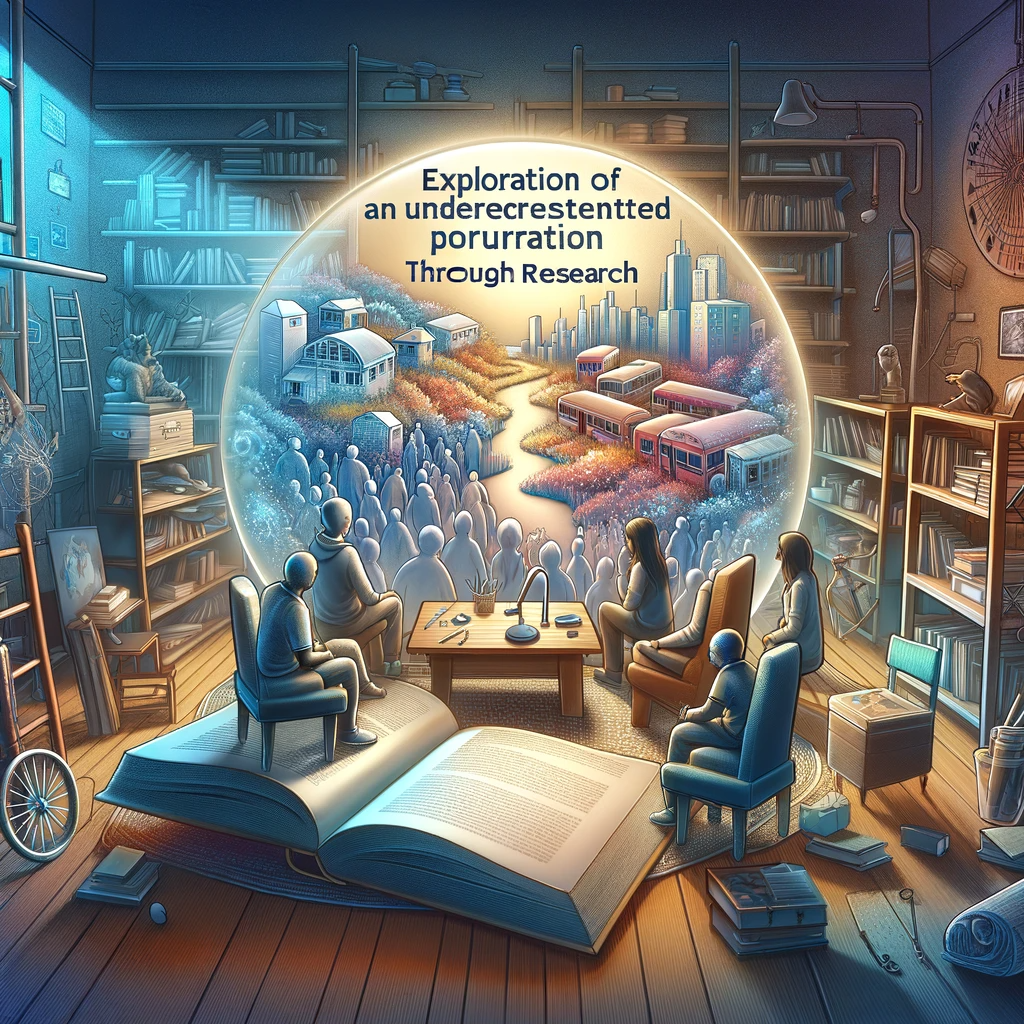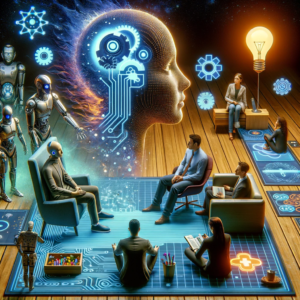Abstract
Exploring the diversity of adopted individuals and their experiences can reveal misunderstood webs of physiological, psychological and sociocultural challenges. These challenges, while not for all adoptees, can often center around common themes such as identity, belonging and feelings of marginalization. This paper aims to briefly discuss multifaceted challenges that the adoptee community can face. By synthesizing insights from various studies, it aims to establish that the adoptee population is and should be considered an underrepresented and marginalized group. It also takes the position that more specialized treatments, therapeutic modalities and research are necessary for creating tailored societal interventions for the unique experiences of the adoptee community.
Keywords: Adoptee; Identity formation; Marginalization; Transracial adoption
Introduction
I have been heavily engaged with the adoptee community since 2019 as a podcast interviewer and professional self-awareness coach. Being an international displaced person at 7 months old myself, my interactions with other members of the adopted community have been extremely enlightening and humbling. I’ve been exposed to diverse perspectives and experiences from many different types of adopted adults (Kinship, Domestic, International). Throughout my experience, I have observed recurring themes that reflect the elements of ethnocentric monoculturalism towards the adoptee community. This paper offers an overview of the adoptee community, emphasizing their struggles, advocacy needs and counseling considerations. It also discusses current therapeutic approaches, knowledge gaps and potential frameworks that may be effective for adoptees facing mental health challenges.
Adoptee Population Overview
The adoptee community comprises individuals who have been separated from their biological origins and placed into new familial dynamics (Baden, Treweeke & Ahluwalia, 2012; Darnell et al., 2016; Cloonan et al., 2023). Approximately 80%-85% of international adoptions are transracial and approx 40% of all adoptions in the USA are transracial (Baden, Treweeke & Ahluwalia, 2012). The adoptee population can be considered an extremely complicated and underrepresented group due to the unique characteristics and experiences of each adopted person (Grotevant et al., 2000). Psychological adjustments for example, especially in adulthood, can vary significantly based on early-life experiences, the quality of adoptive families and the degree of supporting environment- all of which can be further influenced by societal perceptions and stereotypes surrounding adoption (Levy-Shiff, 2001). The complexity of an adoptee’s experiences, such as identity formation, racial and ethnic discrimination, (from both birth and adoptive cultures), societal microaggressions, and potential suppressed traumas, can influence feelings of isolation, confusion, and gas lighting, mirroring the symptoms of marginalization and dismissal within society (Levy-Shiff, 2001; Baden, 2016; Darnell et al., 2016, White et al., 2022). The lack of awareness and acknowledgment of the complexity surrounding an adoptee’s experience can often influence adoptees to feel out of sync or disconnected from their environment (Cloonan, 2023) which may also contribute to chronic feelings of rejection, shame and low self-worth. Furthermore, the lack of access to biological information, including medical history, can also create a gap in self-understanding for many adoptees (Brodzinsky, 2013).
A prevalent challenge encountered by adoptees, irrespective of their circumstances, pertains to identity formation. This may be especially true for transnational adoptees who are navigating dual cultural/national identities and who are seeking to develop a sense of self (Cloonan, 2023; Darnell et al., 2016). Adoptees who seek out their biological family and are in reunion often face challenges with their identity (Muller, Gibbs & Ariely, 2003). The reclaiming of culture is something that I have personally struggled with, being adopted from Colombia South America and also being in re-union with my biological family. There can be intense cultural distress for displaced adoptees due to being raised and forced to acclimate in a different culture (acculturation) and/or racial environment (Sue et al., 2019; Baden, Treweeke, & Ahluwalia, 2012).
There is also evidence of high physiological distress levels, starting from early childhood. Elevated cortisol reactivity has been studied within adopted children, indicating high stress and can be considered a sign of maladaptive coping or even potential underlying trauma (DePasquale et al., 2018). Furthermore, adoptees often struggle with creating secure attachment, potentially from disruptions in early caregiver relationships, specifically the adoptive mother (Honig, 2014). Bonding between the adoptive mother and child at early stages of development is pivotal in shaping the adoptee’s attachment patterns, self-identity and future emotional regulation. Adoptees thus often face many challenges and obstacles developmentally, both during emerging adulthood and long throughout the rest of their life (Grotevant et al., 2017).
CMHC Preparations for Serving Adoptees
Since adoptees may possess hidden multifaceted and un-diagnosed challenges, it is imperative for counselors to be multi-culturally competent and possess knowledge of the biological, psychological and sociocultural dimensions that shape an adoptee’s individual experience (Cloonan, 2023). Many adoptees terminate therapy prematurely because they don’t feel validated or understood and the therapy they receive doesn’t feel tailored to their unique experiences (Muller, Gibbs & Ariely, 2003). Therefore, counselors should have deep understanding of various concepts such as identity development, grief/loss, high rates of insecure attachment and complicated family dynamics (Levy-Shiff, 2001; Honig, 2014; Brodzinsky, 2013). Treating adoptees with a trauma-informed and trauma-specific approach is also essential to carefully and gently acknowledge an adoptee’s nuanced experience, that most likely involves complex layers of unique unresolved traumas and chronic stresses surrounding their early-life experiences, separations and coping mechanisms (DePasquale et al., 2018; Cloonan, 2023; Bremness, A., & Polzin, W. 2014).
Counselors should be well-equipped with adequate resources, ethical codes and specialized training to effectively address the unique challenges encountered by adopted people, especially for transracial adoptees (Brodzinsky, 2013, Baden, A. L. 2016). Specialized resources and interventions that focus on exploring the adopted person’s birth culture, origin stories, and identities by counselors can aid in normalizing duality, bridging cultural or racial gaps, and establishing a novel sense of acceptance and belonging (Baden, Treweeke, & Ahluwalia, 2012). Therefore, recognizing the intersectionality of adoptee’s experiences and the importance of cultural mirroring is essential for CMHC professionals to help establish a sense of belonging and can pave the way towards holistic and tailored interventions (White et al., 2022).
Current Research on Therapeutic Approaches
There are many holistic therapies and interventions currently being explored for the adoptee community. These include Trauma-Focused Therapies, Adoption-Competent Therapies, Group Therapy, Family Therapy, and Attachment-Based Therapies. They all primarily focus on addressing developmental trauma, attachment disruptions, identity struggles, grief, and family dynamics (Darnell et al., 2016; Brodzinsky, 2013; Muller, Gibbs & Ariely, 2003; White et al., 2022).
Other therapies like Narrative Therapy or Cognitive Behavioral Therapy are less holistic but may empower adoptees to re-author their life stories. These therapies can offer opportunities to recognize and validate their experiences without necessarily diving deeper into traumas and core experiences (Muller, Gibbs & Ariely, 2003). Cognitive Behavioral Therapy (CBT), can be very effective in addressing maladaptive thought patterns that adoptees’ experience, but may overlook various traumas and existential concerns such as grief or loss (Bremness, A., & Polzin, W. 2014). Cultural or Racial Identity Development Counseling is also very effective for helping adoptees explore and connect to birth culture. However, it requires careful navigation to avoid enforcing stereotypes or oversimplifying complex cultural experiences (White et al., 2022). The efficacy of all of these treatments is highly dependent on how well therapy aligns with the adoptee’s unique experiences, story, perceptions, traumas, and situation (Baden, Treweeke, & Ahluwalia 2012).
Modality Evolution
The mental health profession’s acknowledgment for the need of interventions that prioritize adoption-centric approaches is increasingly evident. Counselors are more inclined to modify various therapeutic techniques to better align with the emerging insights of adoptees. For instance, childhood memories and early attachment experiences are being explored to address foundational experiences of adoptees (Honig, 2014). Also, traditional therapeutic approaches are now expanding to include broader sociocultural factors, particularly for transnational adoptees (Rosnati et al., 2015). This is extremely important because it prioritizes the evaluation and investigation of underlying root causes, rather than misdiagnosing or generalizing struggles faced by adoptees, labeling them as general mental health issues.
It also appears that counselors are focusing more on identity development and facilitating adoptee-led introspection (Grotevant et al., 2000). Additionally, there appears to be a growing tendency towards acknowledging and validating the displacement trauma experienced by all adoptees, offering a more holistic approach to therapy (Bremness, A., & Polzin, W. 2014). However, it still seems there needs to be more holistic understanding and research of the adoptee experience to better evaluate frameworks that explain various intersections of race, culture, the adoption process, and the role of adoptive parents (Muller, Gibbs & Ariely, 2003; Brodzinsky, 2013).
My Personal Reflections
Until recently, I would argue that the narrative around adoption has been more about the glorifying and positive associations of adoptive parents and their “savior” role, rather than the narratives of the quiet voices of the adopted. As a Colombian international adoptee myself, I hadn’t deeply pondered on how adoption truly impacted me until I started coaching and interviewing adult adoptees around the world. I hadn’t linked my mental health struggles or personal identity nuances, which resonate with many in the adoptee community, to be so closely tied with my adoption-centric experiences.
I think the R/CID framework offers an amazing approach to help adoptees better navigate such adoption-centric experiences (Sue et al., 2019). From what I have seen through my interviews, many adoptees initially conform to their adoptive families’ culture, often suppressing their original heritage, and as they mature, dissonance can emerge, greatly challenging their adoption narratives and identity. Some continue to resist their birth culture, while others immerse deeply, seeking connection and clarity.
When thinking about my own clarity seeking journey, I realize when I began to unravel the multi-layered and multi-cultural dimensions of my identity, it felt as if the foundation of my being and my understanding of self had shifted. Recognizing oneself as part of a marginalized community is a profound realization, prompting a re-assessment of every aspect of one’s life and experiences. In my pursuit to become a counselor, I am committed to acquiring the expertise and knowledge required to facilitate the mindful, trauma-informed investigation into these multi-faceted explorations.
With the complexities of adoption, covering societal, cultural, and personal realms, it’s imperative for a more informed and empathetic approach by counselors. I think our ultimate goal should ensure the adoptee narrative is not simply acknowledged, but deeply understood and valued.
References
Baden, A. L. (2016). “Do you know your real parents?” and other adoption microaggressions. Adoption Quarterly, 18(1), 1-25. https://doi.org/10.1080/10926755.2014.891546
Baden, A. L., Treweeke, L. M., & Ahluwalia, M. K. (2012). Reclaiming Culture: Reculturation of Transracial and International Adoptees. Journal of Counseling & Development, 97(4), 384-393. https://doi.org/10.1002/jcad.12272
Bremness, A., & Polzin, W. (2014). Commentary: Developmental Trauma Disorder: A Missed Opportunity in DSM V. J Can Acad Child Adolesc Psychiatry, 23(2), 142-145. https://www.ncbi.nlm.nih.gov/pmc/articles/PMC4032083/
Brodzinsky, D. M. (2013). A need to know: Enhancing adoption competence among mental health professionals. Donaldson Adoption Institute.
Darnell, F. J., Johansen, A. B., Tavakoli, S., & Brugnone, N. (2016). Adoption and Identity Experiences Among Adult Transnational Adoptees: A Qualitative Study. Adoption Quarterly, 20(2), 155-166. https://doi.org/10.1080/10926755.2016.1217574
DePasquale CE, Raby KL, Hoye J, Dozier M. (2018). Parenting predicts Strange Situation cortisol reactivity among children adopted internationally. Psychoneuroendocrinology. 86-91. doi: 10.1016/j.psyneuen.2018.01.003.
Grotevant, H. D., Dunbar, N., Kohler, J. K., & Esau, A. M. L. (2000). Adoptive identity: How contexts within and beyond the family shape developmental pathways. Family Relations: An Interdisciplinary Journal of Applied Family Studies, 49(4), 379–387. https://doi.org/10.1111/j.1741-3729.2000.00379.x
Grotevant, H. D., Lo, A. Y. H., Fiorenzo, L., & Dunbar, N. D. (2017). Adoptive identity and adjustment from adolescence to emerging adulthood: A person- centered approach. Developmental Psychology, 53(11), 2195–2204. https://doi.org/10.1037/dev0000352
Honig, S. B. (2014). Adopted Children: The Risk of Interactive Misattunement Between the Infant and Adoptive Mother in the Child Relinquished at Birth. Adoption Quarterly, 17(3), 185-204. https://doi.org/10.1080/10926755.2014.891547
Levy-Shiff, R. (2001). Psychological adjustment of adoptees in adulthood: Family environment and adoption-related correlates. International Journal of Behavioral Development, 25(2), 97-104. https://doi.org/10.1080/01650250042000131
Müller, U., Gibbs, P., & Gupta Ariely, S. (2003). Adults Who Were Adopted Contacting Their Birthmothers: What Are the Outcomes, and What Factors Influence These Outcomes? Adoption Quarterly, 7(1). https://doi.org/10.1300/J145v07n01_02
Rosnati, R., Pinderhughes, E. E., Baden, A. L., Grotevant, H. D., Lee, R. M., & Mohanty, J. (2015). New trends and directions in ethnic identity among internationally transracially adopted persons. New Directions for Child and Adolescent Development, 2015(150), 91-95. https://doi.org/10.1002/cad.20121.
Sue, D. W., Sue, D., Neville, H. A., & Smith, L. (2019). Counseling the Culturally Diverse: Theory and Practice (8th ed.). John Wiley & Sons.
Veronica Cloonan, Tammy Hatfield, Susan Branco, and LaShauna Dean. (2023). “The Racial and Ethnic Identity Development Process for Adult Colombian Adoptees.” Genealogy, 7(2), 35. https://doi.org/10.3390/genealogy7020035.
White, E. E., Baden, A. L., Ferguson, A. L., & Smith, L. (2022). The intersection of race and adoption: Experiences of transracial and international adoptees with microaggressions. Journal of Family Psychology, 36(8), 1318–1328. https://doi.org/10.1037/fam0000922






